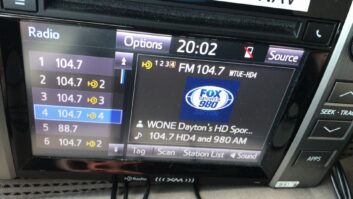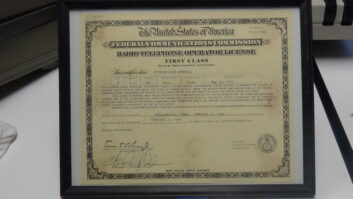
We reported last week about KATY(FM)’s allegations of receiving IBOC interference from KRTH(FM) in Los Angeles. Another interference complaint has surfaced.
Another Class A in SoCal alleges it is receiving interference to its analog signal from the digital signal of a grand-fathered super-powered Class B first-adjacent in Los Angeles owned by a major group.
Spanish-language KMLA in El Rio (near Oxnard) is reportedly receiving interference from the HD operation of KOST, Los Angeles. Gold Coast Radio operates KMLA on 103.7 MHz, and Clear Channel owns KOST on 103.5. CGC Communicator published a copy of the letter. Clear Channel Radio tells me they’re reviewing the complaint.
Meanwhile, going back to the earlier item, KATY attorney John Joseph McVeigh sent me a version of the audio tracks that he filed with the FCC. The mobile recordings include the time, date and place associated with each recording. Open this PDF to hear them; note that this is a 6 MB PDF that needs to load entirely because of the embedded Flash. Click within the box for playback.
While CBS Radio has not yet answered the petition in the KATY case, telling me it’s reviewing the matter, an engineer from a different large radio group who’s familiar with super-powered Class Bs said KATY, a Docket 80-90 Class A drop-in, had elected to receive interference from KRTH when it was built and signed on in 1991.
KRTH is a grandfathered super-powered B whose roots go back to 1941. KRTH is 51 kW at 955 meters, 1 kW over Class B, and 801 meters above class height.
He continued: “The people that signed on KATY elected to receive interference from KRTH, and [KATY] causes quite a bit of interference to KRTH because they used the Class B spacing rules as opposed to protecting it as it exists. By doing this, they volunteered to receive interference. Had they protected KRTH as it was licensed, the station would not exist is it is today (or may not exist at all).”
The plot thickens.
Tell me your thoughts at [email protected]. Also, though we frequently hear anecdotes about instances of interference, they tend to be hard to pinpoint. This is particularly important given what the commission said a while back about a lack of official complaints. So if your station has officially asked the FCC for help with digital interference, let me know so we can report it.












